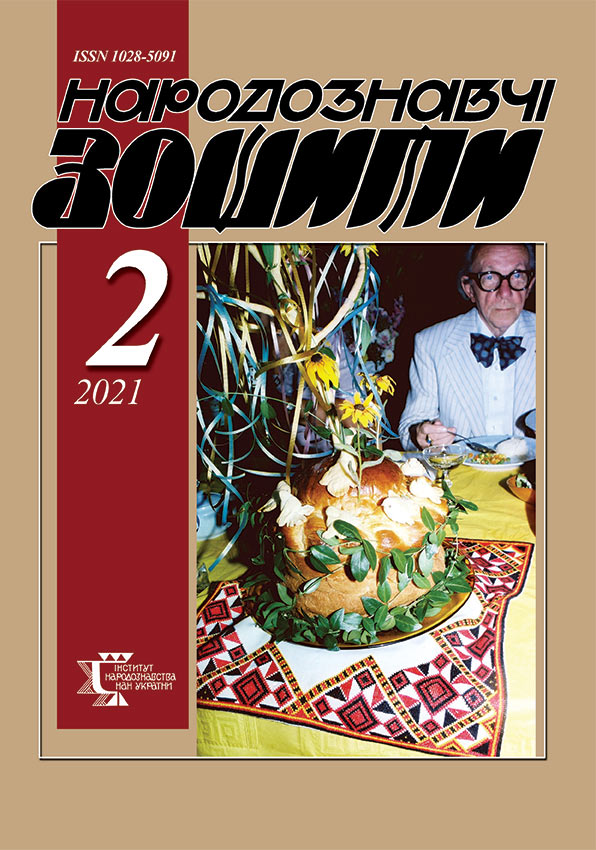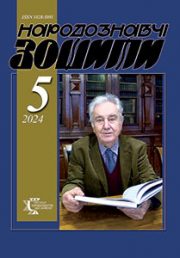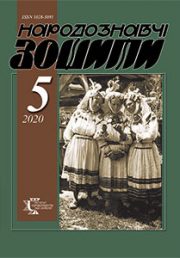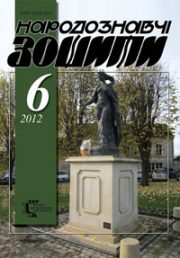The Ethnology Notebooks. 2021. #2 (158). P. 253–502
DOI https://doi.org/10.15407/nz2021.02

Articles
Yevhen PASHCHENKO
LESYA UKRAINKA AS A REPRESENTATIVE OF UKRAINIAN MODERN
255—261
Olena KONDRATIUK
TRANSFORMATION OF FAMILY-CEREMONIAL KINSHIP DURING THE TWENTIETH CENTURY
262—277
Lesya HOROSHKO-POHORETSKA
CHRISTENING OF A BABY IN THE TRADITIONAL PLOT OF POKUTTIA
278—286
Roman SILETSKYI
THE CONCEPT OF CHOOSING IN CONSTRUCTION RITES OF VOLHYNIANS
287—302
Roman RADOVYCH
SPECIFICS OF SELECTION AND LOGGING OF BUILDING WOOD IN THE EASTERN POLISSIA
303—313
Oleksandr KUKHARENKO
FUNERAL AND PUERPERAL RITES: STRUCTURAL AND FUNCTIONAL ANALYSIS
367—373
Bogdana SYPKO
HISTORICAL CONTEXT OF THE ADOPTION OF FRENCH MUSLIM’S PROGRAM DOCUMENTS
395—403
Oksana KULISH
METAPHOR OF THE UKRAINIAN FOLK ICON «THE UNSLEEPING EYE» FROM SUBOTIV
424—434
Anatoliy SHCHERBAN, Yevgen OSADCHIJ
«TROICHATKY» — VESSEL FROM THE HOLDINGS OF THE KONOTOP MUSEUM
435—439
Yuliya MAYSTRENKO-VAKULENKO
DRAWING OF UKRAINIAN ARTISTS DURING EVACUATION (1941—1945)
440—450
Larysa SALATYUK
UKRAINIAN TRANSAVANGARDE: GENESIS AND STYLISTIC FEATURES
451—455
Iryna KOVAL-FUCHYLO
MEMORIAL CULTURE AND ORAL STORIES ABOUT RELOCATION FROM FLOOD ZONES
456—471
Reviews
Dyakiv Volodymyr
Encyclopedic Research of basic concepts and terms on the theory of ethnology
472—474
Movna Marianna
Dniester — the river of time and historical memory
475—478
Gnatuk Vyacheslav
Going back to own roots…
479—483
Pylypiv Igor
Scientific Research about Lemkos
484—485
Radovych Roman
Bead Decoration of Folk Clothing of Ukrainians as an Ethnic Arts Phenomenon
486—487
Information
In memoriam
Professional and ethical code of Ievgen Lunio (1960—2021)
500—502






